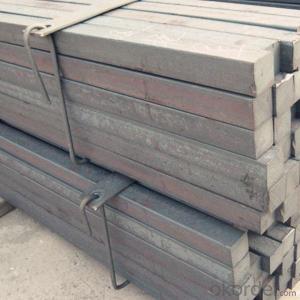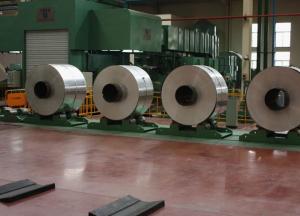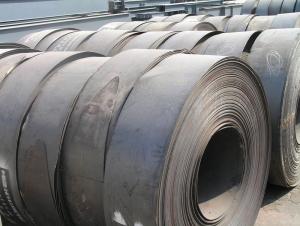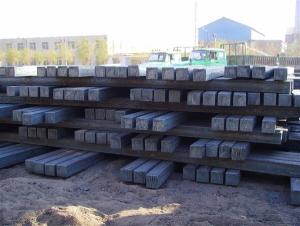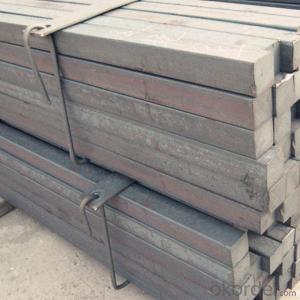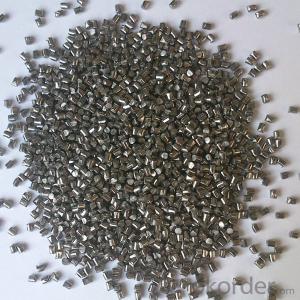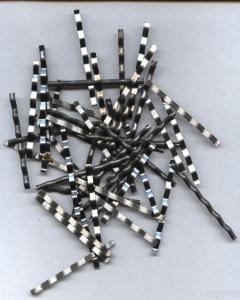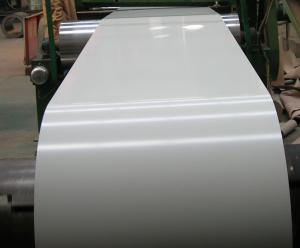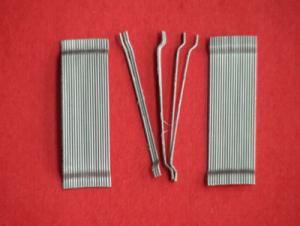Steel Billet Made in China/ China Manufacture/GB ASTM DIN
- Loading Port:
- China main port
- Payment Terms:
- TT OR LC
- Min Order Qty:
- 1000 m.t.
- Supply Capability:
- 100000 m.t./month
OKorder Service Pledge
OKorder Financial Service
You Might Also Like
Item specifice
Product Description
Square steel billet
1.Chemical Analysis | |||
Grade | Carbon(%) | Manganese(%) | Silicon(%) |
A | 0.14~0.22 | 0.30~0.65 | Max0.30 |
B | 0.12~0.20 | 0.37~0.67 | Max0.30 |
C | Max0.18 | 0.35~0.80 | Max0.30 |
D | Max0.17 | 0.35~0.80 | Max0.35 |
2.Mechnical Properties | |||
Tensile Strength(σb/Mpa) | Elongation(δ5/%) | ||
375---500 | ≥26(a≤16mm) | ||
3.basic information | |||
length | Spectfication(mm) | Material quality | Executive standard |
6m | 120*120 | Q235 | GB700-88 |
4.Trade information | |||
Price terms | Payment terms | Delivery time | Packing |
FOB/ CIF | T/T, L/C | Within 30 days | bundles |
Product Picture
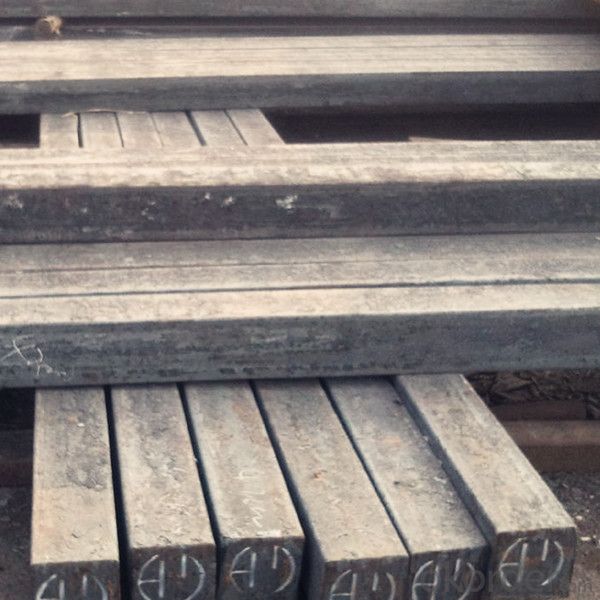
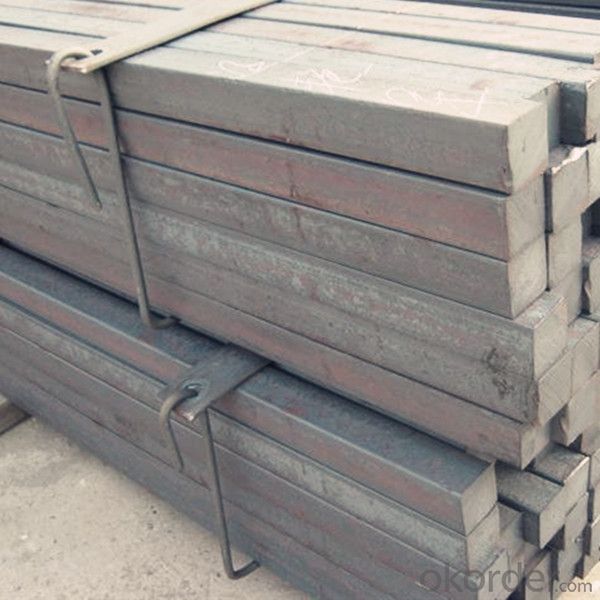
FAQ
Q: Can I get sample and how long will it take?
A:Yes. We can supply sample. And you need to pay for courier.
Q: What's the MOQ?
A: Our MOQ is 1000mt.
Q: What's the delivery time?
A: It will take about 40 days after TT or L/C.
Q: What is the payment terms?
A: T/T, L/C at sight
Q: How does your factory carry out quality control?
A: We attach great importance to quality control.Every part of our products has its own QC.
Q: What certificate do you have?
A: We have SGS, ISO9001 etc. Also we can apply any certificate if you need if the qty is OK.
- Q:What are the different types of steel sheets and their uses in the construction of prefabricated buildings?
- There are several types of steel sheets commonly used in the construction of prefabricated buildings. One of the most common types is cold-rolled steel sheet, which is durable, lightweight, and easy to work with. Another type is galvanized steel sheet, which is coated with a layer of zinc to protect against corrosion. Galvanized steel is often used in outdoor applications or in areas with high moisture levels. Additionally, there are also stainless steel sheets, which are highly resistant to corrosion and offer excellent aesthetic appeal. These sheets are often used in areas where hygiene and cleanliness are of utmost importance, such as hospitals or food processing facilities. Ultimately, the choice of steel sheet will depend on factors such as the building's location, purpose, and desired durability.
- Q:How is steel used in the production of electrical transformers?
- Steel is used in the production of electrical transformers as the core material due to its magnetic properties. The laminated steel core provides a low reluctance path for the magnetic field, allowing efficient transfer of electrical energy and reducing losses.
- Q:How do steel products contribute to the healthcare and medical industry?
- Steel products contribute to the healthcare and medical industry in numerous ways. Steel is a durable and hygienic material that is widely used in the construction of medical facilities, including hospitals and clinics. It provides a strong and secure infrastructure for the safe and efficient delivery of healthcare services. Additionally, steel is used in the manufacturing of medical equipment and devices. From surgical instruments to imaging machines, steel's strength and corrosion resistance make it an ideal material for these critical tools. Steel also plays a crucial role in the production of medical implants, such as joint replacements and pacemakers, ensuring their durability and longevity. Furthermore, steel is utilized in the transportation and storage of medical supplies and pharmaceuticals. Steel containers and shelves provide a reliable and secure means of transporting and storing essential healthcare products, ensuring their safety and efficacy. Overall, steel products contribute significantly to the healthcare and medical industry by providing a strong and reliable infrastructure, manufacturing essential equipment and devices, as well as facilitating the transportation and storage of lifesaving medical supplies.
- Q:What are the common manufacturing processes involved in producing steel products?
- The common manufacturing processes involved in producing steel products include melting and refining of iron ore, which is then transformed into molten steel. This molten steel is then cast into various shapes through processes such as casting, rolling, forging, or extrusion. After shaping, the steel may undergo heat treatment, surface treatment, and finishing processes such as machining, grinding, or coating to achieve the desired properties and appearance.
- Q:What is the impact of steel imports on the domestic steel industry?
- The impact of steel imports on the domestic steel industry can be both positive and negative. On one hand, imports can provide access to a wider variety of steel products and potentially lower prices for consumers. However, a surge in imports can also lead to increased competition for domestic steel producers, which may result in job losses and reduced profitability. The industry's response to imports, such as implementing trade policies or investing in advanced technologies, can play a crucial role in mitigating the negative impact and fostering a more competitive domestic steel industry.
- Q:What are the advantages of using steel products in the automotive industry?
- There are several advantages of using steel products in the automotive industry. Firstly, steel is a highly durable and strong material, providing robustness and ensuring safety in the event of accidents or collisions. Secondly, steel is readily available and cost-effective, making it a cost-efficient choice for automakers. Additionally, steel is easily recyclable, contributing to sustainability efforts and reducing the environmental impact of the automotive industry. Lastly, steel's versatility allows for various shapes and sizes, accommodating the diverse design requirements of different vehicle components. Overall, the use of steel products in the automotive industry offers durability, cost-effectiveness, sustainability, and design flexibility.
- Q:What are the common types of steel products used in the fitness and sports industry?
- Some common types of steel products used in the fitness and sports industry include barbells, dumbbells, weight plates, weightlifting racks, and exercise machines. These products are typically made from durable and strong steel materials to withstand heavy use and provide stability and safety during workouts and sporting activities.
- Q:How is steel billet produced?
- Steel billet is produced through a process called continuous casting, which involves melting scrap steel in an electric arc furnace and then pouring the molten steel into a water-cooled mold. As the steel cools, it solidifies into a semi-finished rectangular shape called a billet, which can be further processed into various steel products.
- Q:What are the different types of steel springs and their uses?
- There are several types of steel springs, each designed for specific applications. Some common types include compression springs, extension springs, torsion springs, and flat springs. Compression springs are used to store energy and provide resistance when compressed, commonly found in automotive suspension systems or mattresses. Extension springs, on the other hand, are used to absorb and store energy when stretched, often found in garage doors or trampolines. Torsion springs apply torque and are used in various applications like clothespins or mouse traps. Flat springs, also known as leaf springs, are flat strips of steel used in vehicle suspension systems or industrial machinery. Overall, these different types of steel springs serve various purposes and are crucial components in numerous mechanical systems.
- Q:What are the advantages of using steel in roofing materials?
- There are several advantages to using steel in roofing materials. Firstly, steel is known for its durability and strength, making it highly resistant to harsh weather conditions such as extreme temperatures, heavy rain, snow, and strong winds. This durability ensures that steel roofs have a longer lifespan compared to other roofing materials, reducing the need for frequent repairs or replacements. Additionally, steel roofs are fire-resistant, providing an extra layer of safety to the building. Steel is also lightweight, which makes it easier and cheaper to transport and install. Moreover, steel roofing materials are available in a variety of colors and styles, allowing for customization to match the aesthetic preferences of the building owner. Lastly, steel is an environmentally friendly choice as it is recyclable, reducing the impact on the environment and promoting sustainability. Overall, the advantages of using steel in roofing materials make it a popular and practical choice for many buildings.
1. Manufacturer Overview |
|
|---|---|
| Location | |
| Year Established | |
| Annual Output Value | |
| Main Markets | |
| Company Certifications | |
2. Manufacturer Certificates |
|
|---|---|
| a) Certification Name | |
| Range | |
| Reference | |
| Validity Period | |
3. Manufacturer Capability |
|
|---|---|
| a)Trade Capacity | |
| Nearest Port | |
| Export Percentage | |
| No.of Employees in Trade Department | |
| Language Spoken: | |
| b)Factory Information | |
| Factory Size: | |
| No. of Production Lines | |
| Contract Manufacturing | |
| Product Price Range | |
Send your message to us
Steel Billet Made in China/ China Manufacture/GB ASTM DIN
- Loading Port:
- China main port
- Payment Terms:
- TT OR LC
- Min Order Qty:
- 1000 m.t.
- Supply Capability:
- 100000 m.t./month
OKorder Service Pledge
OKorder Financial Service
Similar products
New products
Hot products
Related keywords
